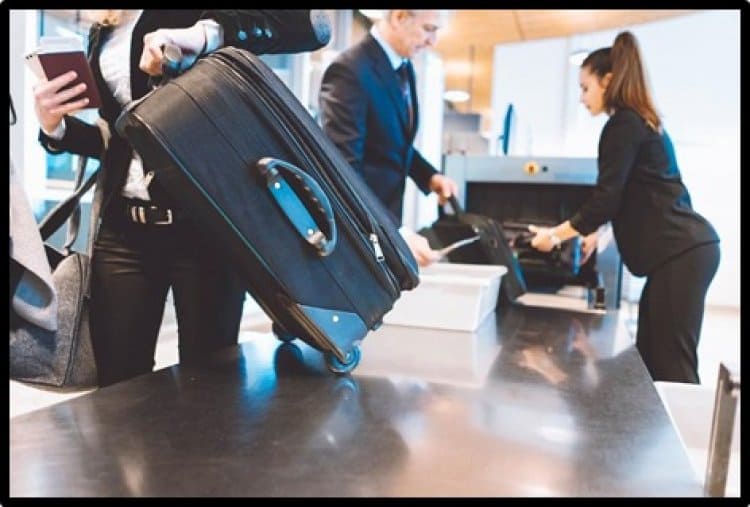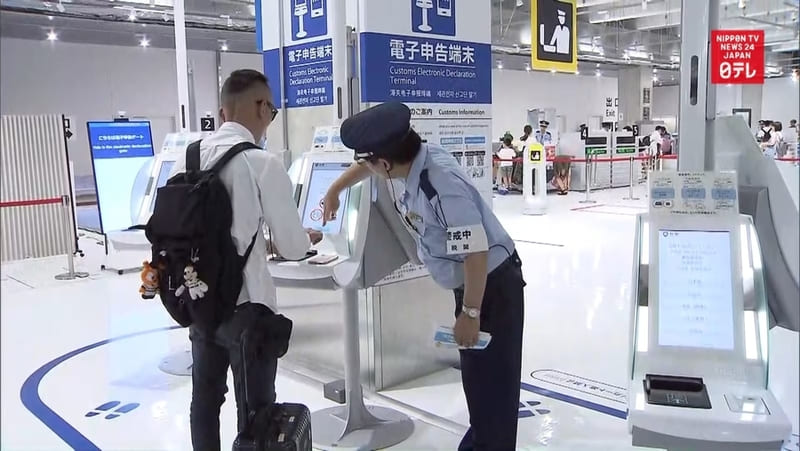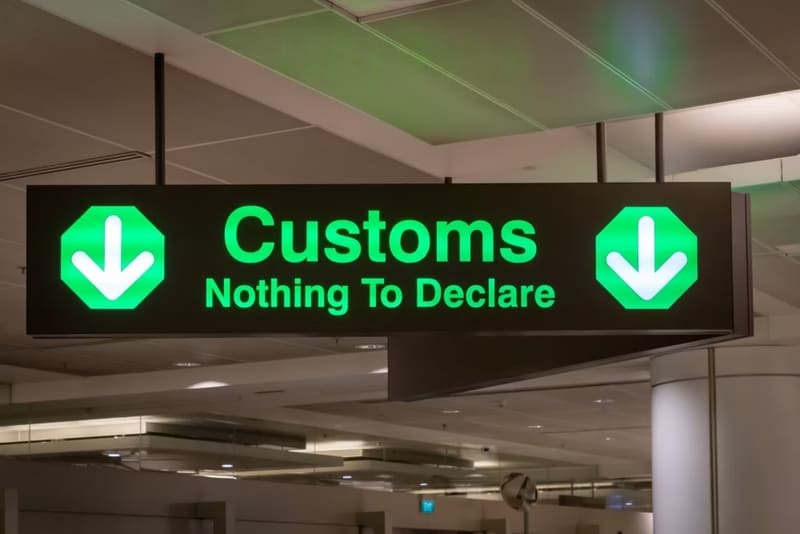
Duty-free allowances permit travelers to bring certain items into Japan without paying duties or taxes, provided they stay within specified limits.
Everyone who arrives in Japan needs a Japanese Customs Declaration, so understanding what exactly you can bring in is important.
This article explains the allowances for duty-free products and outlines what happens when your items exceed the limit.
Duty-Free Allowance and Limits
Below, you’ll find a list of Japanese duty-free allowances and the duties that apply when limits are exceeded.
Personal effects and professional equipment
Items such as clothes, toiletries, and professional tools are considered duty-free if they are for personal use, not for sale, and in reasonable quantities.
How much alcohol can I bring into Japan duty-free?
You can bring up to 3 bottles (760 ml each) of alcohol duty-free. Exceeding this limit will incur duties, which vary by type of alcohol:
- Whiskey, brandy: 800 yen per liter
- Rum, gin, vodka: 500 yen per liter
- Distilled beverages (e.g., sake): 300 yen per liter
- Wine or beer: 200 yen per liter
What is the duty-free limit for tobacco products at Japanese airports?
Like alcohol, the allowed quantity of tobacco you can bring duty-free differs by type of product:
- Cigarettes: Up to 200 cigarettes
- Cigars: Up to 50 cigars
- Other tobacco (e.g., sake): Total of 250 grams
- Heat-not-burn products: Up to 10 packages
If you exceed these limits, duties will apply, calculated as follows:
- Cigarettes: 15 yen per cigarette
- Cigars: 15 yen per gram
- Heat-not-burn products: 15 yen per stick or 50 yen per capsule
How much perfume can I bring to Japan duty-free?
You can bring up to 2oz (approximately 50ml) of perfume into Japan, duty-free. Any excess will be taxed.
Other goods
Items not listed above can be duty-free if their total value is under 200,000 yen. Any item valued over 10,000 yen must be declared separately.
What to do when you exceed the duty-free Limit
When your goods surpass the duty-free allowances, duties and taxes will be calculated based on the type and value of the excess items:
- General goods: A 15% duty applies to items exceeding the 200,000 yen limit, plus a 10% consumption tax on most imported goods.
- High-value items: Items worth over 200,000 yen must be fully declared, with duties and taxes applied to their total value.
Make sure to fill out the Japan Customs Declaration form correctly to avoid fines, taxes, or confiscation of goods at the border.
How to Declare Goods at Japan Customs
If your items exceed the duty-free limits when arriving in Japan, follow these steps to comply with customs rules:
Declare goods at the red channel
When you arrive in Japan, you’ll have to pass through the red or green channel at customs. The green channel is for passengers who have nothing to declare. If you have goods to declare, proceed to the red channel for assistance in calculating applicable duties and taxes.
Show your Japan Customs Declaration
You can fill out our Japan Customs Declaration before you travel. This will save you time at the airport. You’ll receive a QR code, which you simply present at customs when you arrive in Japan.
Pay required duties and taxes
If you need to pay any duties, you can do so at designated counters within the customs area. Make sure you keep any receipts as proof of compliance.
Penalties for Incorrect Declarations at Japanese Airports
Failing to declare dutiable goods at Japanese customs can result in serious consequences, including fines, confiscation, and even legal action. It’s important to always follow duty-free shopping rules in Japan to avoid these penalties.
Customs officers may conduct random inspections, even if you pass through the green channel, so it's essential to follow the rules and declare items accurately.
Confiscation of Items
Customs officials can seize any undeclared goods, especially if they exceed the duty-free allowance or fall under prohibited categories. Once confiscated, it may be difficult or impossible to retrieve the items.
Fines of Up to 500,000 Yen
Severe violations can lead to fines reaching up to 500,000 yen (approximately $3,500 USD). This applies to undeclared goods of significant value or repeated offenses.
Possible Legal Action and Imprisonment
In cases of serious infractions, legal action may be taken. This can include prosecution, which may result in imprisonment for offenses like smuggling or attempting to evade significant duties.
To avoid these penalties, always double-check customs regulations and declare items as required.
Tips To Avoid Extra Costs and Delays
To pass through Japanese customs without any problems, keep these practical tips in mind. You can also consult the Japanese customs regulations for up-to-date and detailed guidance.
Know duty-free limits
Familiarize yourself with the allowances for alcohol, tobacco, and other goods. Exceeding these limits may result in additional charges.
Keep receipts for valuable items
Carry receipts for high-value items like jewelry or cameras to declare their value accurately. This can help avoid issues if you need to prove the items are for personal use, not resale.
Commonly Forgotten Duty-Free Items at Japanese Airports
Travelers often forget to declare items like luxury watches, designer handbags, or electronics purchased abroad. Even if these items fall within your personal allowance, it's important to declare them to avoid any misunderstandings at customs.
Be honest when declaring items
If you're unsure whether an item needs to be declared, it’s better to declare it. It's always safer to disclose than risk fines for hiding something.
Pack prescription medication with documentation
If you bring any medication, make sure to carry the prescription in English. Some medicines require special approval for import into Japan.
Avoid packing prohibited items
Leave items such as meats, fruits, or restricted products out of your luggage. Japan has strict regulations on importing agricultural and animal products.
By following these tips, you can avoid unnecessary costs and pass through customs hassle-free.



